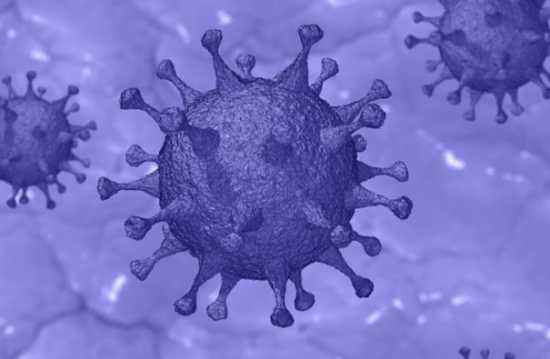New Delhi: India is currently experiencing a fresh uptick in COVID-19 cases, with the total active infections surpassing the 1,000 mark as of May 27, 2025. The states primarily driving this surge are Maharashtra, Kerala, Karnataka, and Delhi. This rise coincides with the detection of two new sub-variants, NB.1.8.1 and LF.7, which are now under global observation.
New Variants: Increased Transmissibility, Mild Symptoms So Far
Both NB.1.8.1 and LF.7 are sub-lineages of the JN.1 variant, which remains the dominant strain in India. Initial research suggests that these new variants have increased transmissibility, meaning they can spread more easily due to a stronger binding ability to human cells. However, health authorities, including the World Health Organization (WHO), have classified them as “Variants Under Monitoring” and emphasize that no significant spike in disease severity has been reported so far. Experts advise that the symptoms associated with these new variants are generally mild and subtle, similar to previous Omicron strains. These commonly include:
- Sore throat
- Fatigue
- Mild cough
- Fever (including low-grade hyperthermia)
- Muscle aches
- Nasal congestion
- Headaches
- Nausea
- Gastrointestinal issues
While loss of taste and smell was prominent in earlier waves, it is less frequently reported now.
State-wise Case Surge: Kerala and Maharashtra Lead
Kerala has reported the highest number of new infections, with 335 new cases, pushing its total active cases to 430. Maharashtra follows with 154 new confirmed cases, bringing its total to 210. Delhi has also seen a notable rise, recording 99 new cases and pushing its total active count to 104. Other states like Gujarat, Karnataka, and Haryana have also registered an uptick. Arunachal Pradesh reported its first case earlier today, initiating contact tracing efforts.
Experts Advise Caution, Not Panic
Dr. Vishal Rao, Advisor to the Karnataka Government on COVID measures, has urged the public not to panic. He stated that while the current strain is not a variant of concern, caution is still essential for vulnerable groups. “Unvaccinated individuals and those with complex comorbidities are most at risk due to compromised immunity,” he added, advising immunocompromised people to remain vigilant.
Health authorities have intensified surveillance nationwide and are urging the public to follow preventive measures, especially in states with higher transmission rates. Experts continue to emphasize the importance of vaccination, mask usage in crowded places, and testing if symptoms persist beyond 3-4 days. It is also advised to avoid crowded places as an extra precautionary measure.
As of now, seven deaths have been reported since May 19, primarily from Maharashtra, Karnataka, Rajasthan, and Kerala. Doctors, however, signal underlying conditions as a major cause of these fatalities.
The situation is under continuous monitoring, and citizens are reminded that while the virus continues to evolve, the overall situation remains manageable. Staying informed and adhering to public health guidelines are key to containment.





